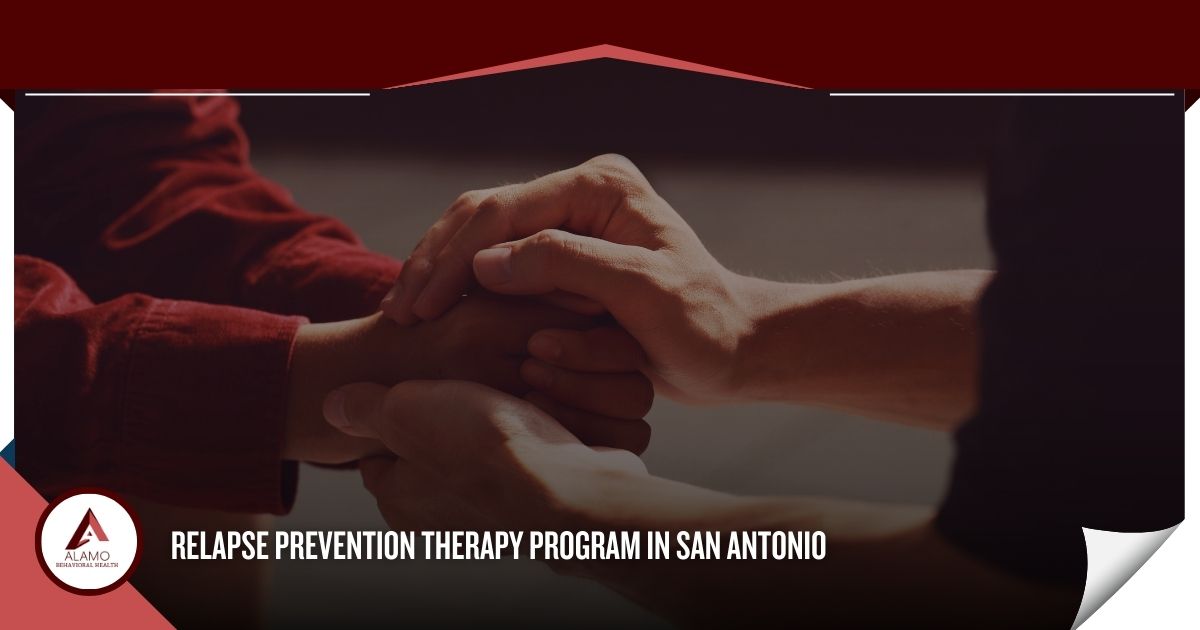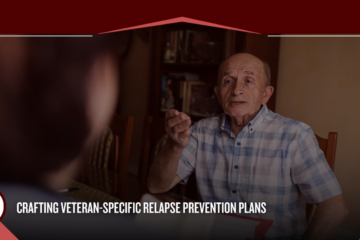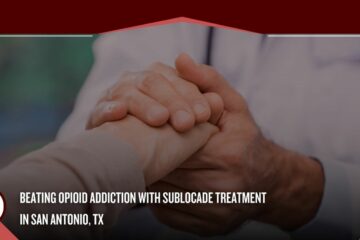
Drug and alcohol addiction can damage every part of your life. Your relationships, health, and emotional well-being can suffer as the addiction takes over. Overcoming an addiction often requires professional treatment and ongoing support.
After completing a substance abuse treatment program, many people feel mixed emotions. They may feel uncertain, excited, overwhelmed, or other complex feelings. Navigating early recovery can be challenging, and many people worry about relapsing.
There are many strategies you can use to prevent relapse. Participating in our relapse prevention therapy program in San Antonio can help you develop skills to manage high-risk situations. You will build a strong support network that will help you overcome challenges.
This article will explore what happens in a relapse prevention therapy program. You will learn how relapse occurs and where to find evidence-based prevention therapy programs.
Contact the team at Alamo Behavioral Health now to learn about our substance use disorder (SUD) treatment programs. Our programs support long-term recovery by providing the coping strategies you need to avoid relapse. Reach out today to begin your recovery journey.
What Leads to a Relapse?
In most cases, people do not experience a relapse out of the blue. A relapse typically happens in stages. Understanding these stages may help you recognize it and seek treatment before a relapse occurs.
Here is an overview of the stages of a relapse.
Emotional relapse
An emotional relapse may happen when you are experiencing challenges or difficult emotions. Some signs of an emotional relapse include:
- Skipping meetings or therapy sessions
- Developing poor eating habits
- Sleeping poorly
- Isolating
- Getting away from your usual routine
- Neglecting your hygiene
These signs can be an early warning sign that a relapse is on the horizon.
Mental relapse
During a mental relapse, people may begin to think about using drugs or alcohol more often. They may feel nostalgic about drug use. People may say things like:
- “I’ve already quit once. I could do it again.”
- “I deserve it because I’ve been working hard.”
- “I don’t have a problem because my addiction isn’t as bad as other people’s.”
- “I can always just go back to treatment.”
- “I have figured out how to manage this, so I can use or drink again without worrying.”
If you do not get help during a mental relapse, your risk of physical relapse is high.
Physical relapse
A physical relapse includes using drugs or drinking. It also includes all the actions that lead up to physical substance use, like calling your dealer or driving to the bar.
A relapse can be discouraging and dangerous. It is crucial to learn and use relapse prevention strategies to avoid a relapse from occurring.
What is Relapse Prevention Therapy?
Relapse prevention therapy can help you develop a practical relapse prevention plan. Relapse prevention therapy may be part of your addiction treatment plan. You may also focus on developing relapse prevention strategies after finishing rehab.
Relapse prevention therapy focuses on several core aspects of addiction and recovery. It uses cognitive behavioral therapy (CBT) techniques to help people identify and change destructive behaviors.
Here is an overview of what you will learn during this type of therapy.
Identifying triggers
A trigger is any person, place, feeling, or situation that may cause cravings and relapse. In therapy, you will learn to identify your unique triggers and develop healthy coping skills to avoid or manage them.
The pros and cons of addiction
During relapse prevention therapy sessions, you will work with a therapist to identify not only the negative aspects of your substance use, but what you got out of it. Acknowledging the positive and negative aspects of your addiction can help you understand and overcome your substance use for good.
Developing coping skills
Avoiding all of your triggers is impossible. You must develop healthy coping skills to manage them. Some examples of healthy coping skills include:
- Regularly attending therapy or support groups
- Having a support system you can rely on during challenges
- Calling friends or family members when you are triggered
- Practicing mindfulness, meditation, or deep breathing
- Finding healthy distractions, such as hobbies or exercise
During relapse prevention therapy sessions in San Antonio, you will work with your therapist to develop new ways of managing your triggers.
Gaining perspective
Research shows that between 40 and 60% of people in recovery experience at least one relapse. It’s important to reframe your negative thoughts about relapse. Thinking differently about a relapse can help you move forward quickly and recommit to staying sober.
Relapse prevention therapy focuses on understanding addiction without judgment and developing new routines and strategies to prevent relapse. It is a valuable part of addiction treatment and recovery that can help you achieve your goal of lifelong sobriety.
Find Relapse Prevention Therapy in San Antonio Texas
At Alamo Behavioral Health, our relapse prevention therapy program is designed to provide clients with the services and resources they need to be successful after treatment. In the program, clients will not only learn essential relapse prevention skills, but also obtain valuable resources that address common hurdles in recovery, such as housing, support groups, and other forms of ongoing support.
If you or someone you love needs help to avoid relapse, effective treatment is available. Reach out to the Alamo Behavioral Health specialists now to explore your treatment options.



